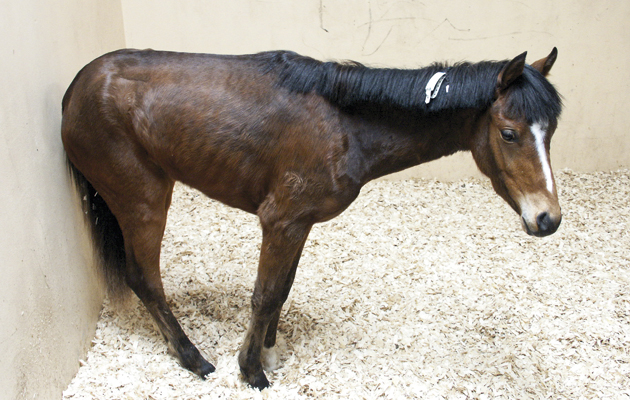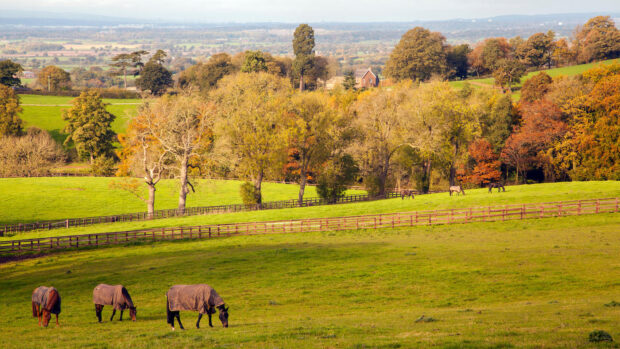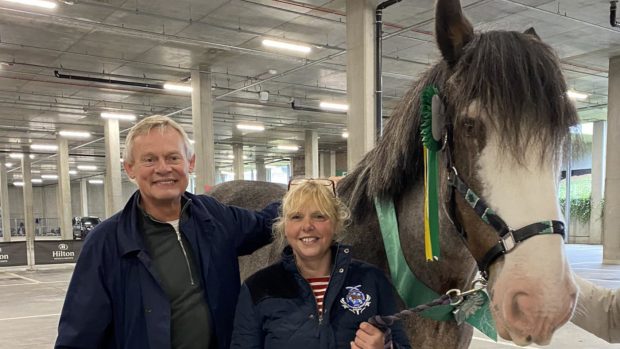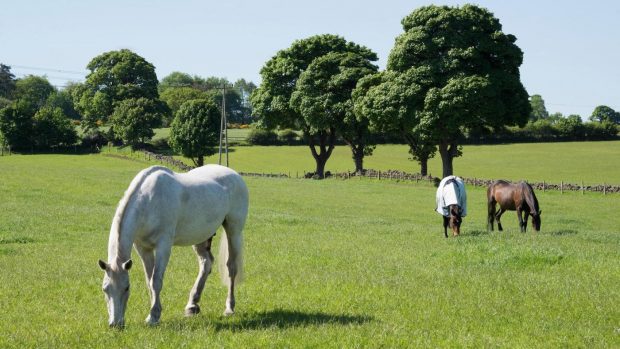Vets are urging owners to be vigilant after a rise in cases of equine grass sickness (EGS) in the past year.
The condition — which is fatal in many cases — is most prevalent between April and September.
Last year insurers Petplan Equine paid out almost £37,000 in claims relating to the condition. The highest number of claims came in June and July — likely to have resulted from cases from May, which is recognised as a high-risk month.
EGS is now thought to be caused by a toxin produced by clostridia bacteria, the same bacteria that, in different circumstances, can cause botulism. They affect the nervous system.
“The bacterium lives in the soil and when it spreads onto the grass itself it can be ingested by horses,” said vet Gil Riley.
“The toxin that is produced by the bacterium after it has been consumed interferes with the nerves in the horse’s intestine, causing severe dysfunction and colic — which is almost always fatal.”
There are three types of the condition: acute (sudden on-set with colic-like signs), sub-acute (similar but less severe), and chronic (which accounts for around one-third of cases).
“Some cases of chronic EGS respond to intensive nursing and can survive. It is challenging to care for them properly. Often the biggest obstacle is their reluctance to eat, but it is very rewarding when treatment is successful,” said Dr Tim Mair from Bell Equine Veterinary Clinic in Kent.
He added that “this sort of intensive care is only appropriate for certain cases, which retain some ability to drink and swallow feed.”
To try to avoid the condition owners are warned not to change field management or diet during the high-risk time.
Feeding haylage or hay at pasture, or bringing horses into a stable at night may reduce its occurrence as it cuts down on grazing exposure.
A new vaccine trial for EGS is currently being conducted by the Animal Health Trust with the Universities of Edinburgh, Liverpool and Surrey, following around 1,000 horses and ponies for two years.
“We will record, review and compare incidence of EGS between the two groups [one given a vaccine, the other a placebo] to determine the efficacy of the vaccine,” said Dr Jo Ireland of the Animal Health Trust.
“If we see reduced disease incidence in vaccinated horses, this would provide a major breakthrough in the prevention of EGS.”
But many owners remain unaware of the condition.
Kate Thompson from the Equine Grass Sickness Fund said: “In the UK around 140 deaths from grass sickness are reported each year, but we believe the true number is much higher.”
“The statistics speak for themselves,” said Petplan Equine’s Charlotte Collyer.
“We understand an equine grass sickness vaccine is currently being trialled. Until then we want to remind horse owners that prevention is of paramount importance as this is a condition for which there is often no cure.”
For more information visit: www.horseandhound.co.uk/grass-sickness
Ref: H&H 13 May, 2015




